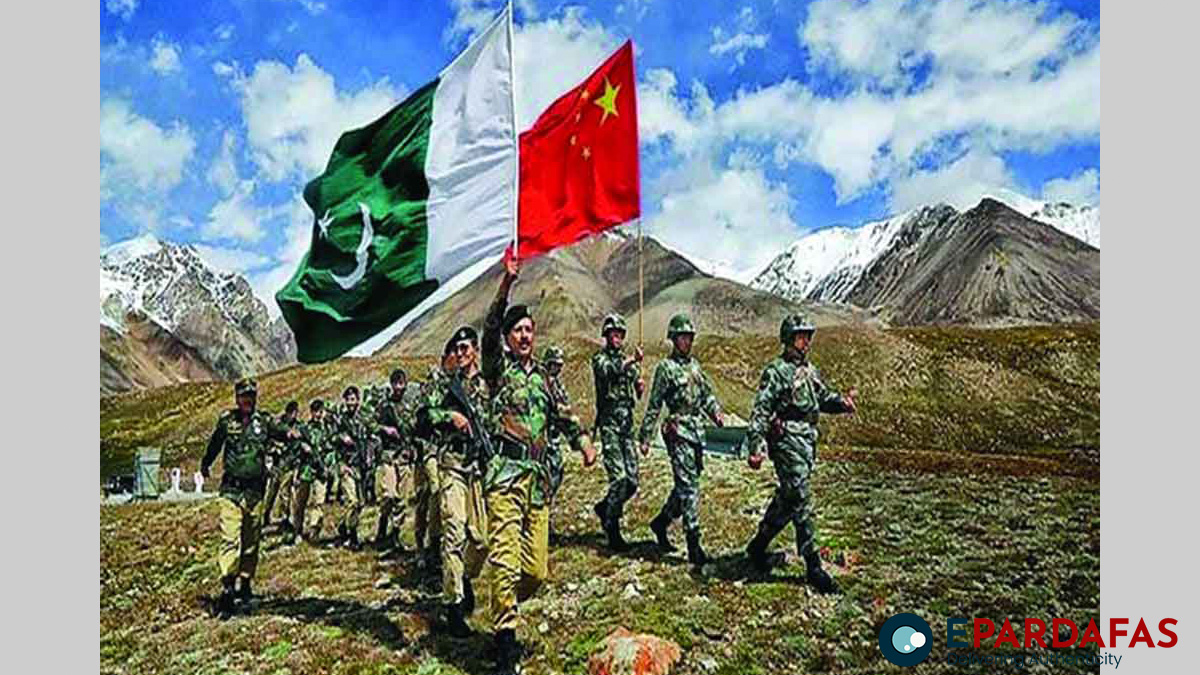
U.S. Sanctions on Chinese Firms Threaten Pakistan Defense Ties
Fresh U.S. sanctions on Chinese ballistic missile suppliers are posing a significant threat to Pakistan’s defense ties with Beijing, with analysts suggesting that these actions could drag Islamabad deeper into the ongoing superpower rivalry between the United States and China.
The U.S. State Department recently imposed sanctions on the Beijing Research Institute of Automation for Machine Building Industry. The U.S. accused the firm of procuring equipment for testing Pakistani rocket motors, prompting the sanctions. In addition to this, the penalties have been extended to three other Chinese companies—Hubei Huachangda Intelligent Equipment, Xi’an Longde Technology Development, and Universal Enterprise—as well as Chinese national Luo Dongmei and Pakistan-based Innovative Equipment. The sanctions allege these entities transferred equipment controlled under missile technology restrictions.
According to Washington, the equipment provided by these firms was intended for Pakistan’s Shaheen 3 and Ababeel ballistic missile programs. The Shaheen 3 is a medium-range missile with a range of 2,750 kilometers, capable of reaching deep into India and the Middle East. The Ababeel, meanwhile, is a tactical missile with a range of 1,800 kilometers, designed for similar strategic purposes.
U.S. Strategy and Impact on Pakistan-China Ties
Security experts argue that these sanctions form part of a broader U.S. strategy to contain China’s rise, rather than specifically target Pakistan. “This is part of the U.S. larger strategy of economic coercion aimed at containing the Chinese rise rather than aimed at Pakistan,” said Syed Muhammad Ali, a security expert based in Islamabad.
Ali emphasized that there is little evidence linking China directly to Pakistan’s nuclear-capable ballistic missile program, suggesting that most Pakistan-China defense cooperation focuses on conventional arms to meet the needs of the Pakistani air force, army, and navy. “Pakistan-China defense cooperation is related to conventional arms to meet its air force, army, and naval requirements and not based on ballistic missiles which Pakistan has indigenously developed,” he added.
Islamabad was quick to reject the sanctions, labeling them as politically motivated. Mumtaz Zahra Baloch, a spokesperson for Pakistan’s Ministry of Foreign Affairs, criticized the move, stating, “It is widely known that some countries, while claiming strict adherence to nonproliferation norms, have conveniently waived licensing requirements for advanced military technologies to their favored states.”
Deepening Defense Cooperation Between Pakistan and China
China remains Pakistan’s largest arms supplier, accounting for 44% of all major arms exports to Pakistan between 2000 and 2023, according to the Stockholm International Peace Research Institute. The two nations have a long history of defense collaboration, including the joint development of the JF-17 Thunder fighter aircraft and the Al-Khalid main battle tank. Other defense procurements include 25 J-10C aircraft, Wing Loong II armed drones, and eight Hangor-class attack submarines.
While the sanctions may not have an immediate effect on Pakistan’s ballistic missile program, experts warn that Pakistan’s defense cooperation with China may face significant hurdles going forward. “Pakistan has a special defense relationship with China, and it has no other partner to turn to for its missile development needs if Beijing continues to be targeted with punitive U.S. measures,” said Michael Kugelman, director of the South Asia Institute at the Wilson Center.
Future Implications
The sanctions could complicate future transactions between Pakistan and China. Ayesha Siddiqa, a senior fellow at King’s College London, highlighted the global dominance of the U.S. dollar, which may force Chinese firms to comply with the restrictions. “This dominance can force Chinese firms to be more cautious when dealing with Pakistan in the future,” she noted.
In the broader geopolitical context, Washington’s actions may further entangle Pakistan in the escalating U.S.-China rivalry. Kugelman suggested that “over the longer term, Pakistan-China defense relations could face challenges for very practical reasons if relentless U.S. sanctions on China’s missile industry make it more difficult for Beijing to provide the types of weaponry on which Islamabad has long relied.”
If China becomes less accessible due to U.S. sanctions, Pakistan could be forced to search for alternative suppliers, but this could be a lengthy process. Kugelman noted that Pakistan’s history of proliferation issues may also make it challenging to find new partners willing to engage in defense collaborations.
Siddiqa added that the U.S. likely imposed the sanctions with its Indo-Pacific allies in mind. “The U.S. would like to secure and consolidate its partners in the region from the threats of ballistic missile attacks,” she concluded.
In the context of U.S.-China geopolitical rivalry, these sanctions signify a further escalation that may deeply affect Pakistan’s defense strategy and its ability to source military technology from China.
- Nepal’s Tapas Adhikari Honored with Global Ambassador Award 2024
- India Warns Canada of Further Strain Over Alleged Campaign Targeting Sikh Activists
- Adani Group Denies Bribery Allegations as “Baseless,” Reaffirms Commitment to Compliance
- Revenue Collection Increases by 17% in Q1 of FY 2024/25, but Misses Target













Comments